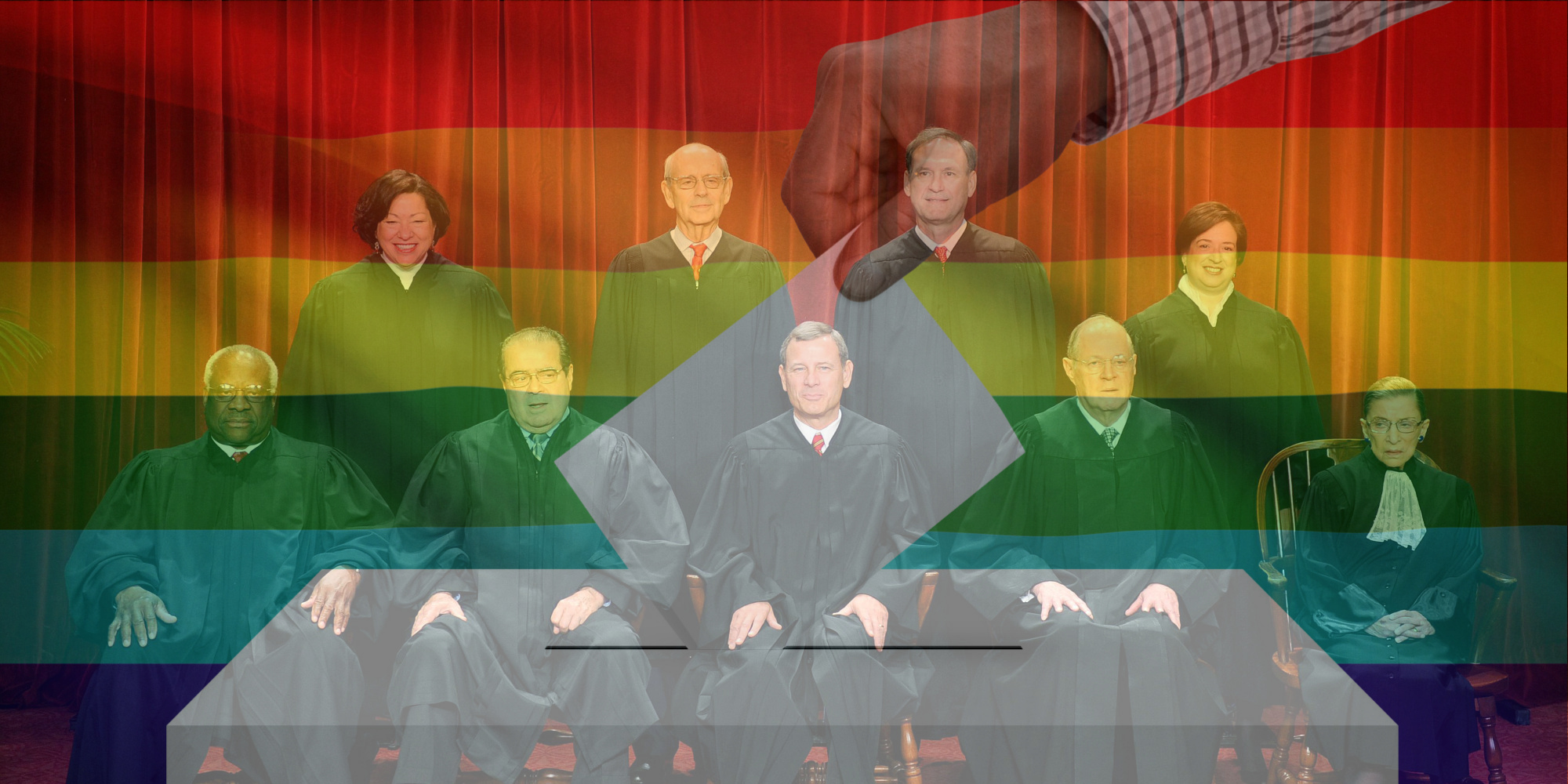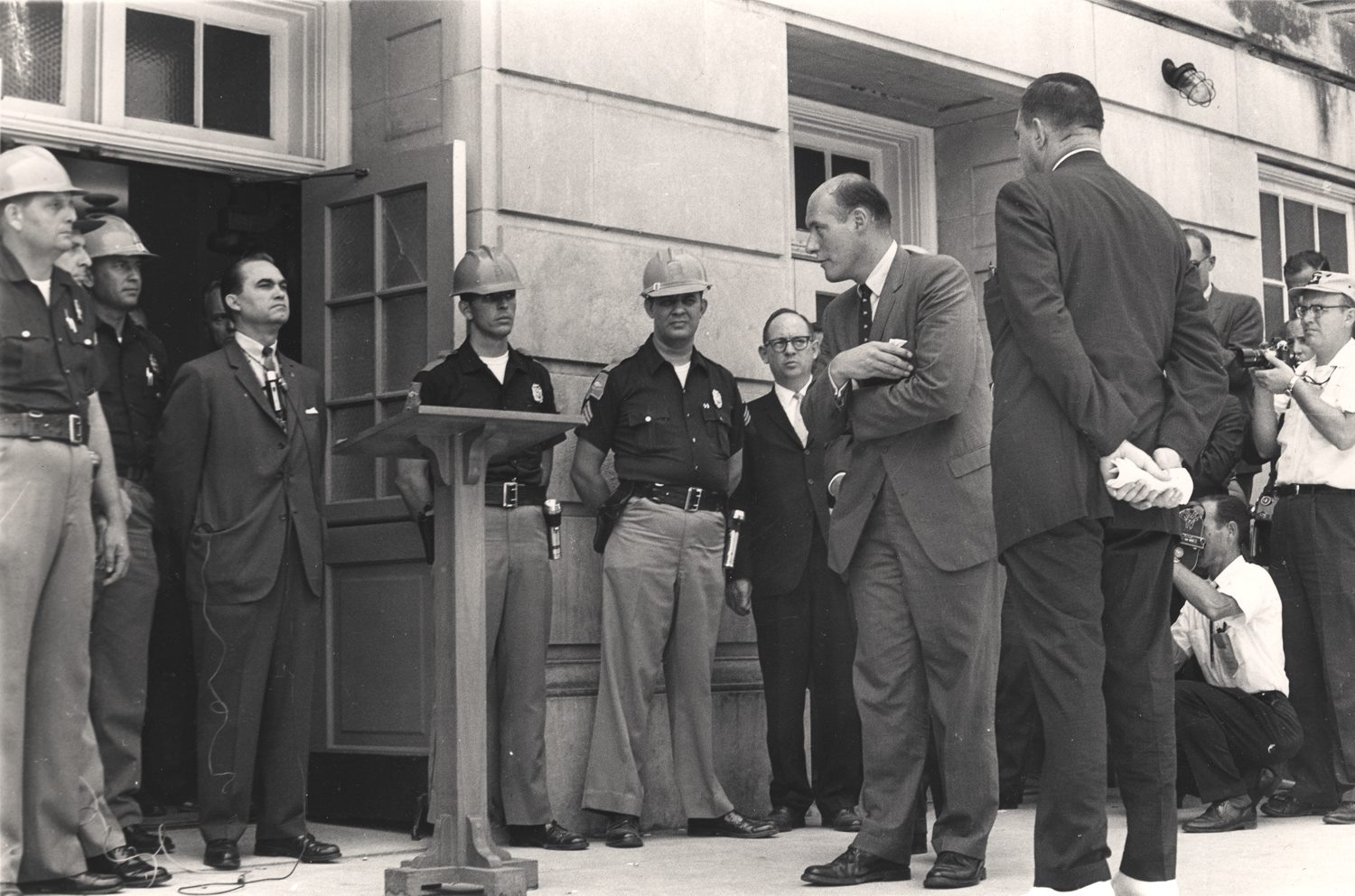By Anthony Farajallah
The question is no longer whether the Supreme Court will rule in favor of nationwide marriage equality, but where each individual justice will fall. The US public is quickly evolving on the issue, and checkered equality among states continues to push for a more conclusive nationwide ruling. Much like the battle over interracial marriage, this fight is coming down to many of the reddest states being forced to extend marriage rights.
34 states recognized interracial marriage before the Loving v. Virginia decision invalidated all laws prohibiting interracial marriage in 1967. The move towards interracial marriage came mainly through state legislatures and several judicial decisions, such as the California Supreme Court’s invalidation of that state’s interracial marriage ban in 1948. California’s decision provided reasoning and precedent for the 14 other states that followed in their move towards interracial marriage equality.
Interracial marriage’s 21st century counterpart, same-sex marriage, is now recognized in 37 states, a number that would have been unfathomable only a few years ago. The fight for marriage equality had its first victory in 2004, as Massachusetts became the first state to recognize same-sex marriages. Momentum has slowly built. By the landmark in 2013, 19 more states and Washington D.C. had legalized same-sex marriage. In the Windsor decision, the U.S. Supreme Court deemed the Defense of Marriage Act (DOMA) to be unconstitutional. DOMA, enacted in 1996, constituted a federal ban on same-sex marriages. In striking it down, the Court argued, “the Constitution bars the federal government from treating traditional marriages differently from same-sex marriages in states that legalize both” but failed to deem same sex marriage a constitutional right guaranteed nationwide.
Even though the court stopped short of declaring all state bans of same sex marriage unconstitutional, striking down DOMA generated powerful momentum for the movement. Dozens of following rulings relied on Windsor as the basis for recognizing same-sex marriage in their respective states. Windsor aided in “demolishing all the arguments put forward to justify marriage discrimination and affirming that marriage matters to gay couples as it does to all loving, committed couples.”
The momentum reached a judicial impasse when two federal appeals courts delivered contradicting rulings in November of 2014. Hinging on precedence, the split in rulings drove the Supreme Court to hear arguments in its next round of cases for whether the Constitution requires states to “license a marriage between two people of the same sex.” Further, the Court will hear and decide whether states must “recognize a marriage between two people of the same sex when their marriage was lawfully licensed and performed out of state.” The ruling that emerges from this yet to be named case in June, which consolidates four state lawsuits, will likely serve as the final say on whether same-sex marriage is legal nationwide and guaranteed by the Constitution.

While 70% of Americans live in states where same sex marriage is legal, the fight for marriage equality is slowly making its way to the South. Alabama’s recent defiance of a federal judge’s order to issue marriage licenses to gay couples sets itself apart from any other state’s proceedings. Roy Moore, the Chief Justice of the Alabama Supreme Court, instructed probate judges within the state not to comply with order while championing for . The Alabama Supreme Court requested a stay on the ruling until SCOTUS ruled definitively on the issue in June, but the US Supreme Court declined the stay with a 7-2 outcome, possibly foreshadowing its upcoming nationwide ruling. Moore’s stand echoes that of Alabama Gov. George Wallace’s refusal to integrate the University of Alabama in 1963, for both championed states rights in the face of equality. This places Moore against the ever-growing tide of support for marriage equality among Americans.
Despite a nationwide majority of 63% in favor of marriage equality, Alabama remains at 32% support, dead last among all states. Nationwide support for gay marriage has a strong geographical divide, with the Northeast and West Coast approving of marriage equality at higher proportions than the South or Midwest. There is also a generational division, with millennials’ support exceeding two-thirds. Oddly enough, interracial marriage only reached a majority of public opinion in 1997, a full 30 years following Loving v. Virginia. While the Supreme Court was far ahead of popular sentiment with interracial marriage, it is now lagging behind in opinion related to marriage equality. Even though procedure and politics may differ, the 7-2 decision to allow gay marriages in Alabama to go forth provides a solid glimpse into how the nine justices will rule come June on its constitutionality nationwide.
Many pundits and commentators are trying to predict how the Supreme Court will vote on this issue. For the most part, these predictions are based on the previous decisions and ideological leanings of each justice. The block of liberal justices – Justices Ruth Bader Ginsburg, Stephen Breyer, Sonia Sotomayor, and Elena Kagan – are expected to vote in favor of equality. The stark conservative section of the bench – represented by Justices Antonin Scalia, Samuel Alito, and Clarence Thomas – will surely vote against equality. Justice Ginsburg recently voiced her opinion on same-sex marriage, stating that legalizing gay marriage “would not take a large adjustment” for Americans, considering “the change in people’s attitudes on that issue has been enormous.” Her conservative colleague, Clarence Thomas, one of two dissenters in the Alabama SCOTUS ruling, also acknowledged that the Court’s move to allow gay marriages “may well be seen as a signal of the court’s intended resolution.”
Many expect that this ideological division leaves the fate of same-sex marriage in the hands of the traditional wildcard, Justice Anthony Kennedy, and the legacy-minded Chief Justice John Roberts. Justice Kennedy, who is widely viewed as the natural swing vote on the marriage equality case, has authored “three opinions strongly in favor of gay rights over the course of his career.” In fact, Kennedy was the swing vote in the 5-4 Windsor case. As for Chief Justice Roberts, his dissent in Windsor picked at the federalism angle of the case and not the substantive question of whether states can ban same sex marriage. Many commentators claim that he is far too legacy minded to go down as the Chief Justice who voted against the biggest civil rights question of this generation.
High popular sentiment, the continued rise increase in state-by-state recognition of same sex marriages, and favorable support among several justices of the Supreme Court make marriage equality inevitable. The arc of history leans towards equality, and a decision denying marriage equality would jolt the fight for civil rights backwards. As a Millennial America continues to manifest itself, “people are realizing that someone’s sex life is his or her own business, and just not worth fighting over or judging.” It is only a matter of time before the Supreme Court recognizes and validates the legitimacy of same-sex relationships.